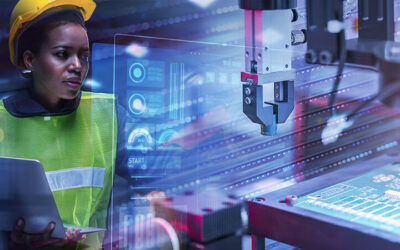What is Robotic Technology? Often the romanticization of technology can hide the truth of robotics: a machine is only a machine if it can be reconfigured to perform a certain task without human assistance. A robotic vehicle has no idea of how to operate a table saw, just as a computer has no idea how to be an airplane or an office chair. Robotics engineers need to figure out how to reprogram computers and other machines to work with people.
As we progress toward the implementation of self-piloted robots in factories and other places of work, we will undoubtedly see smarter robots that may not necessarily have emotions, but can respond to their owners in other ways. We are already seeing this principle in manufacturing automation today. Robotic welding robots make it possible for manufacturers to seamlessly connect wire, weld pipes together, and install cabinet parts with relative ease. Drones have demonstrated excellent aerial maneuverability and capability in combat. We will likely soon see autonomous operation of fully automated vehicles on the open road.
Artificial intelligence will be crucial in the future of robotics. Today’s robots are limited by simple rules of physics and actuators. In the future, however, robots will have more complex decision making processes and will take data from various sources, synthesizing it into a logical and complete response. This will usher in a new era of industrial robots: one in which complex decisions will be made based on actual experience, rather than on cold, mechanical algorithms. Robotic intelligence will also give machines the ability to communicate with humans, and even to think on their own.
How will robotic engineers deal with the next wave of industrial robots without human input? Will robots still be controlled by humans in all respects? Will robots still be able to adapt to changing circumstances? And how will artificial intelligence and the associated science fiction robots affect our culture, if at all? Cultural implications of robotics are already being addressed by some of the emerging autonomous vehicle technologies.
The future of robotics is probably still far off, but we are seeing the beginnings of self-driving cars and self-driving trucks. We may soon see flying robots or insectoid robots doing the walking, or maybe even robotic birds. While these might seem like science fiction predictions, they’re really nothing new. Robotic net-centric battle suits, insect swarms, and other technologically advanced robotic animals already exist today.
Indeed, artificial intelligence in robots is also growing with each passing day. Today’s robots are much better than they were even just five years ago. Robotic engineers and robotic technicians have been creating very sophisticated software programs for robots to work alongside people in an ever-increasingly complex environment. The future of robotics is still far off, but it looks more likely that computers will eventually work alongside humans in every walk of life, including manufacturing and industrial robots.





